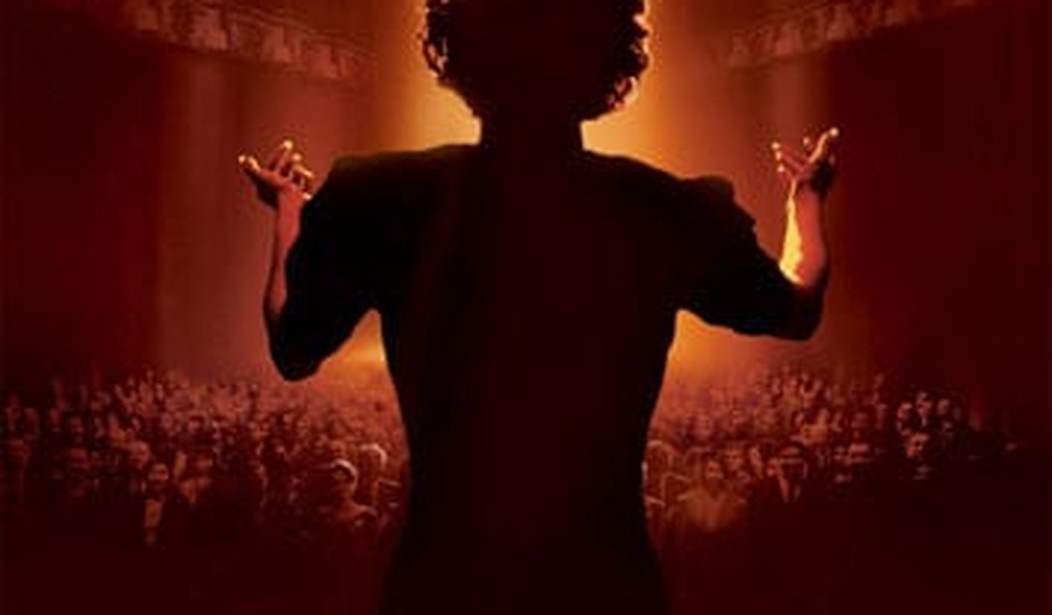The English director Mike Figgis is often in and out of Los Angeles. When he’s here, he usually comes to the Farmers Market for morning coffee with my band of local picture business rustics. I’d been away and missed his most recent visit but a young friend of his swears the following happened. When Mike arrived at LAX recently, he declared, as the law requires, that he was here to work. Asked what that work entailed, Mike said that he was going to “shoot a pilot.”
The meaning of that is clear to most Angelenos, but not to this guy.
He busted Mike.
It got sorted out of course. Apparently a few newspapers picked it up, though that hardly guarantees its legitimacy. Anyway, it’s a good story and it may even be true.
*******
Michael Chabon has published some eight books including The Amazing Adventures of Kavalier & Clay, which won the Pulitzer Prize in 2001. At forty-five, he’s a master of fiction’s various forms, yet his most endearing literary quality on high display in his new novel, The Yiddish Policemen’s Union, is a sort of nutty youthful enthusiasm. Each exuberant book reads like the work of a gifted tyro, bubbling over with ideas and emotions.
The Yiddish Policemen is hard-boiled detective fiction in the Philip Marlow – Sam Spade manner, with a jolt of near-futurism. It’s set in an Alaskan settlement of Jews called Sitka where Middle Eastern Yids (the book’s breezy and favored term, used with and without rancor) have repaired after the Arabs’ destruction of Israel soon after its formation. The Balfour-like declaration that gave them the Alaskan land also put a stop date on it – sixty years, which is about to come due. The Jews of Sitka, “the frozen chosen,” are a rough lot — tough workmen, mean rabbis, and a few dedicated and morose cops. Everyone has a problem with the Tlingit Indians who were there first and aren’t crazy about the Yids. The Tlingits are a real tribe just as Sitka is an actual place, not that I knew any of that, but Wikipedia will explain it all if you’re interested.
It’s set in an Alaskan settlement of Jews called Sitka where Middle Eastern Yids (the book’s breezy and favored term, used with and without rancor) have repaired after the Arabs’ destruction of Israel soon after its formation. The Balfour-like declaration that gave them the Alaskan land also put a stop date on it – sixty years, which is about to come due. The Jews of Sitka, “the frozen chosen,” are a rough lot — tough workmen, mean rabbis, and a few dedicated and morose cops. Everyone has a problem with the Tlingit Indians who were there first and aren’t crazy about the Yids. The Tlingits are a real tribe just as Sitka is an actual place, not that I knew any of that, but Wikipedia will explain it all if you’re interested.
Chabon’s Sitka is an unusually well imagined place. One comes to know the cheap hotels, saloons, and other trouble spots as if these were part of a much visited or at least read about enclave. The Alaskan weather dominates everything. The enterprise is given additional life by the invented slang. A shoyfer, to choose one example, is a cell phone. It’s a riff on shofar, the ram’s horn of Jewish rite — tooted vigorously on a few holidays. Chabon doesn’t explain it; the characters just use the word in conversation and he assumes that for the most part people will get the idea.
The central character is Meyer Landsman, of the Sitka police force. He has a murder to solve, and a mysterious death (his sister’s) to sort out. He has a partner, one Berko Shemets, a Tlingit raised as a Jew. And Meyer has a still longed for ex-wife who becomes his boss. The events of the story are the tropes of all American detective fiction. The plotting is the least of it. There are a lot of hard Jews in this book and some of them play chess and all of them argue and take pokes at one another. If a stranger – say a Sitka cop out of his jurisdiction – isn’t careful, he could get his head bashed in. There are a couple of rabbis that you wouldn’t want supervising a bar mitzvah. Jews as tough as these bring Isaac Babel to mind, which makes the imagined Sitka a version of Odessa.
This is a wildly entertaining novel with a wide range of reference. There are a few mentions of a film version of The Heart of Darkness, made by Orson Welles. As the cinema-mad among us know, Welles tried for years to make such a movie but it remained unrealized.
As my ancestors might have said, “Made up to you, maybe, but in Sitka, it’s a movie.”
*******
Edith Piaf (1915-63) the subject of La Vie en Rose, a new biopic, was one of the greatest of all modern cabaret-concert hall singers. Her only equal was Billie Holiday with perhaps Judy Garland and Frank Sinatra close behind. For me, hearing Piaf’s records when young was to know that there was a more powerful and truer place beyond the provinces of the Middle West (where I had been inconveniently set down.) It was Piaf’s Paris, which like an Atget photograph or one of Brassai’s images, really did exist. Her voice had a French worldliness and a passion and pain that can be felt more readily than evoked in words. When Piaf sang, everyone was French at least for a moment. She was a gift to the world and she didn’t last long.
Her only equal was Billie Holiday with perhaps Judy Garland and Frank Sinatra close behind. For me, hearing Piaf’s records when young was to know that there was a more powerful and truer place beyond the provinces of the Middle West (where I had been inconveniently set down.) It was Piaf’s Paris, which like an Atget photograph or one of Brassai’s images, really did exist. Her voice had a French worldliness and a passion and pain that can be felt more readily than evoked in words. When Piaf sang, everyone was French at least for a moment. She was a gift to the world and she didn’t last long.
The intensity and high-theatricality of her voice is of a piece with the operatic travails of her life – raised in a brothel then a circus, blind for part of her childhood, she was a street singer before she was an adolescent, and eventually a star with heaps of illness and difficult love. Such a story can’t be told in a subtle key.
No one could call this biopic subtle, but Marion Cotillard’s Edith is a wonderful creation.
It’s Piaf’s voice we hear – and how could it not be? Cotillard gives it additional life. At her most haggard, when she sings and the music comes over her we feel her gain strength and power. We know she’s killing herself but we also know that if she doesn’t sing, no matter the cost, there’s no point to living.. Ms. Cotillard is supported by Gerard Depardieu who used to be in every French movie, or so it seemed, as Edith’s first manager; Jean-Pierre Martins as the boxer Marcel Cerdan, Edith’s all too married lover, and Emanuelle Seigner as a maternal whore in Edith’s childhood brothel.
Biopics are a staple of Hollywood and their structure always turns on the same question: Do you show the entire life, or do you pick one period that reflects the whole? The former is the obvious, standard way and that’s the path La Vie en Rose tries to take. Perhaps the director, Oliver Dahan, had a change of heart because he’s put his literal time line though a cinematic Cuisinart. All the swirling back and forth in time is often confusing. The result is an Academy-pleaser, certainly, and a chance to listen to Piaf who lived fast and hard and had, as the title of one of her greatest songs has it, No Regrets.
David Freeman is the author of six books including, “%%AMAZON=0881848700 A Hollywood Education,%%” “%%AMAZON=0786705914 One of Us,%%” and, most recently, “%%AMAZON=0743249755 It’s All True.%%” He’s a screenwriter and playwright and has contributed to many print publications including The New York Times, The Wall Street Journal, The Los Angeles Times and The New Yorker.









Join the conversation as a VIP Member